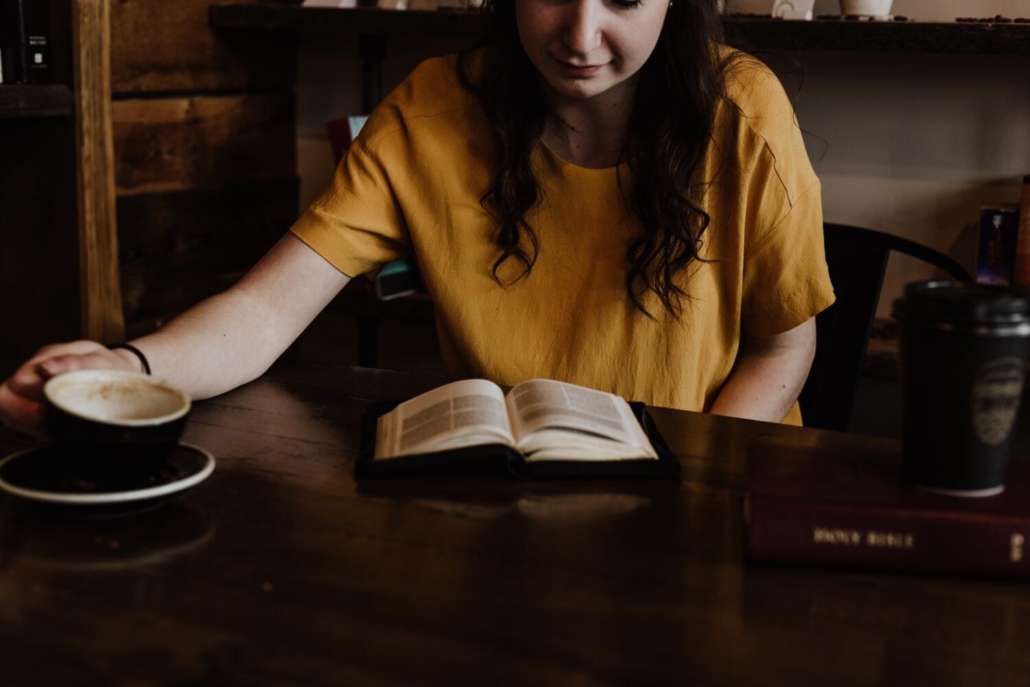Second Thoughts: On Interpretation
Author: Juliette McNair | Student, Living Ed Charlotte 2020
Estimated reading time: 3 min.
Mr. Peter Nathan began the forum by asking, “What’s your worldview?” Inspired by Dr. Meredith’s article Satan’s Alternative Universe, Mr. Nathan created a presentation that broke down what an alternative universe is—a worldview.
Your worldview shapes your vision—like glasses. It is your perception of reality—literally, “the way you interpret the world.” Interpretation occurs every day in ways we take for granted. We interpret people’s body language. We examine our own conflicted feelings to discover why we feel so hurt or happy. If we apply meaning to anything, we’re using interpretation.
Dr. Meredith wrote about the countless alternative interpretations we encounter in the world. But these different worldviews don’t simply involve things we can see—they involve perspectives we can’t see.
A college student combats alternative worldviews regularly. We have to manage ourselves around the various filters (or lack thereof) of our peers, and we are, essentially, every professor’s captive audience in the classroom. We are solidifying our interpretations of reality while being fed the worldviews of those around us. How do students navigate tests, essays, projects, and discussions that require them to regurgitate their professors’ views?
Interpreting the Interpretations

Before coming to Living Education, I attended a State University of New York. I had two professors who strongly contended that gender is a societal constraint. One professor insisted that the existence of hermaphroditic, intersex genetics prove, beyond a doubt, that gender is a continuous spectrum. The other professor taught literature, and she vehemently said that people who believe there are only male and female genders constantly oversimplify things into extremes and refuse to see any complexity in life.
I could have disproved these teachers’ incorrect perceptions—if they would have listened to God’s interpretation of reality. But I had to sit in class respectfully and swallow my frustration—and I couldn’t ignore their worldview. I really gained a better understanding of how and why they see the world as they do.
Ignoring or avoiding the various worldviews we face is not helpful; we need to understand others’ interpretations to better serve them now and later. But with that said, I want to achieve that balance of seeing the perspectives of others and understanding where they come from while intensely analyzing their worldview for truths and flaws—interpreting their interpretation.
Have you ever thought about the phrase, “That’s open to interpretation”? Can you imagine Christ ever saying that? Or would He respond with the right interpretation? What are our thoughts when we hear somebody use that phrase?

Is Anything in Life “Open to Interpretation”?
Mr. Nathan pointed out that God provides “a perspective for interpreting every subject matter.” 2 Peter 1:20 says that “no prophecy of Scripture is of any private interpretation….” Yes, we are human, so we all see the world through different eyes, but isn’t there a correct interpretation for which we all strive? This applies not only to interpreting the Bible, but also to analyzing the worldviews of our friends, family members, and college professors.
If we don’t actively analyze the interpretations around us, and if we don’t take the time to learn God’s interpretation of things, we risk making the alternative universes of the world our own. It’s worth considering how we interpret the world—and the worldviews—around us.

Juliette McNair is a student at Living Education Charlotte. She works in the Editorial Department transcribing sermons and proofreading transcripts. She also assists Living Education by writing Second Thoughts essays and Forum/Assembly Summaries for the website. Juliette recently graduated from SUNY Cobleskill in Upstate New York with an A.A.S in Horticulture, a B.T in Plant Science, and a minor in English with a writing focus. She loves playing soccer on the beach, getting up early to watch the sunrise, and playing piano with the lights out.









